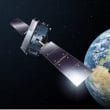Insufficient incentives for improving security
By Radwan Ziadeh |
Now that Syria has joined the Chemical Weapons Convention and Bashar al-Assad's chemical stockpile is being destroyed, it is the Syrian people who will benefit—it is they who have been blatantly targeted with chemical weapons by their own political leadership. Similarly, ordinary people across the Middle East would benefit if a chemical-weapon-free zone were established in the region. Chemical weapons are above all a human rights issue.
When considering a chemical-weapon-free zone, it is crucial to keep the issue's human aspect vividly in mind. No more vivid illustration is possible than the events of August 21, 2013, when the Syrian regime attacked civilians in a heavily populated part of the Ghouta region, near Damascus, with sarin. The attack was carried out in such a way as to maximize suffering. The rockets carrying the chemical agent were fired in the dead of night when residents would be asleep. When they heard the rockets they sought shelter but—according to the report of the UN mission that investigated the incident—the attack had been launched under meteorological conditions that would "[maximize the weapons'] potential impact as … heavy gas can stay close to the ground and penetrate into lower levels of buildings and constructions where many people were seeking shelter." Women and children—entire families—were among those who perished. One survivor has testified that he lost 40 family members. The attack was meant to annihilate civilians.
This incident illustrates the horror of chemical weapons, and few would dispute the proposition that the world be better off with chemical weapons abolished. But would a chemical-weapon-free zone in the Middle East contribute to regional security?
Unquestionably, it would. It would eliminate the possibility of chemical warfare between states and reduce the risk that non-state actors could capture and utilize state-manufactured chemical weapons. Moreover, recent Western-backed agreements regarding Syria's chemical weapons and Iran's nuclear program have created diplomatic momentum that might be leveraged for establishing a chemical-weapon-free zone. And Syria's accession to the Chemical Weapons Convention and the ongoing dismantlement of its chemical arsenal remove a significant impediment to banning chemical weapons from the region. Israel and Egypt are left as the only Middle Eastern countries not to have ratified the convention.
But Israel seems unlikely to ratify the convention, and declare and destroy any chemical facilities it might have, without assurances that Egypt would do the same. Egypt's public stance, meanwhile, has been consistent: It will not ratify the convention and eliminate its chemical weapons unless Israel joins the Nuclear Non-Proliferation Treaty (NPT). Any change in Egypt's position seems unlikely in light of that country's ongoing political turmoil. And Israel is, if anything, less likely now to accede to the NPT than it was before a deal was struck between Iran and the members of the UN Security Council, plus Germany, that may lead to international acceptance of some elements of Tehran's nuclear program.
World powers with the capacity to pressure either Egypt or Israel on these issues—notably the United States—are clearly distracted by other priorities. The United States would much rather use its precious leverage to ensure a democratic transition in Egypt or achieve progress in negotiations between Israel and the Palestinians.
In any event, establishing a chemical-weapon-free zone would do little to resolve many of the prominent security issues that afflict the region, in particular the Syrian conflict, Iran's nuclear program, and the Israeli-Palestinian issue. Syria's conflict would mostly fall outside negotiations because Damascus has now ratified the Chemical Weapons Convention. Iran would not occupy center stage either because it is has ratified the convention and claims not to possess a chemical weapons program.
In a region where diplomatic breakthroughs are so hard to achieve, it is tempting to reach for the seemingly low-hanging fruit of a regional chemical weapons ban, and even to regard progress on this front as a stepping stone for progress on larger issues. But it is hard to identify the incentives that would motivate Israel and Egypt to officially renounce chemical weapons. Both countries would be likely to regard such a step as exposing them to unacceptable security vulnerabilities—and neither country would perceive much benefit in it.














